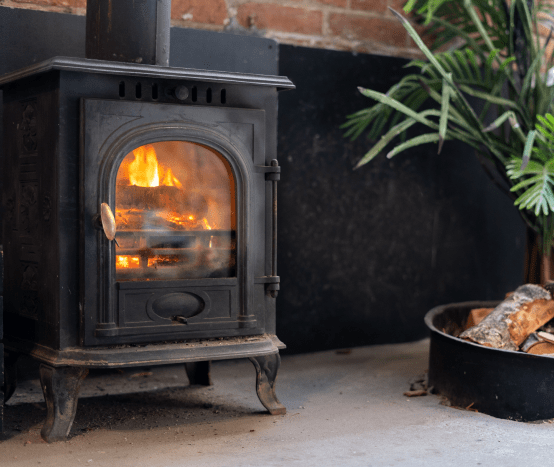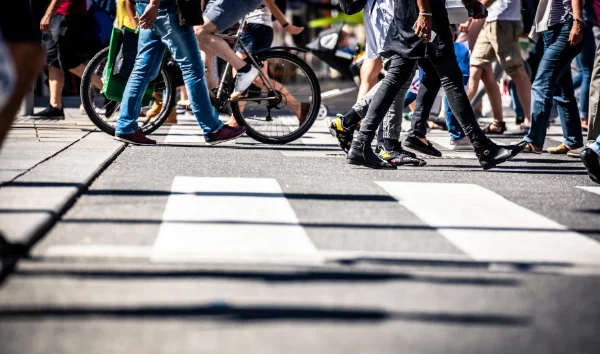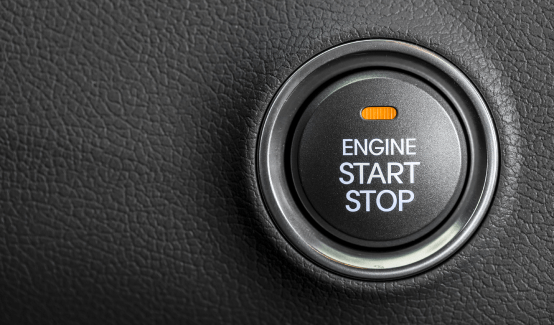What can I do?
Find out how you can get involved in helping make the air cleaner for everyone
What can I do?
To make a real difference we all need to work together. Join Lewisham in their fight for cleaner air by doing the following:
Active travel strategy
To improve air quality, we are encouraging residents to make active travel the first choice for everyday journeys in the borough.
Active travel refers to journeys made using people-powered modes of transport, like walking, cycling, wheeling and scooting. Active travel plays a crucial role in reducing emissions for cleaner air, increasing safety, and making streets more accessible.
To support this, we've launched a long-term Active Travel Strategy. Over the next 7–10 years, we aim to improve roads, travel infrastructure and public spaces, to create a healthier, and safer borough with more attractive streets for pedestrians and cyclists, while reducing pollution.

Things to do at home
You can keep warm at home without wasting energy.
- The Energy Saving Trust recommends heating your home to between 18 to 21 degrees Celsius during winter.
- Get a smart meter if you can.
- Make sure gas appliances and heaters are regularly inspected.
- If you’re buying a new boiler, choose one that’s low emission.
- Insulate your water heater and accessible hot water pipes.
- If you’re buying new appliances, choose low-energy star-rated products.
- If you have real coal fires, wood burning stoves or log burners, only use them if you have no alternative source of heating/hot water and help reduce dangerous air pollution in your homes and in the borough.
Learn more about air quality and the health impacts of domestic wood burning.
Switch off your engine
Leaving car engines running unnecessarily, also known as idling, pollutes the air and causes asthma and other lung and heart conditions in both children and adults.
- With idling costing up to 3p per minute in fuel, it is cheaper to switch off your engine. If a vehicle idles for 10 minutes per day, within 6 months that will cost more than £58.
-
Say no to unnecessary idling and yes to clean air by switching off your engine whenever possible .

Driving sustainably
- Drive smoothly, within speed limits and avoid sudden braking or acceleration. This will use less fuel and reduce exhaust emissions.
- Maintain your car and keep the engine properly tuned and the tyres at the right pressure.
- Consider the lowest-polluting vehicle or a zero-emission electric car if you’re buying a new car or van.
- Walk, ride a bike or use public transport, instead of driving.
Air pollution calculator
Calculate your air pollution footprint using the air pollution calculator and create your own air pollution action plan.
Reducing exposure to air pollution
If you or people you care for experience breathing difficulties, caused by air pollution, make sure any medications (e.g. inhalers) and action plans include managing triggers such as poor air pollution.
Some people with asthma can have asthma attacks triggered by thunderstorms, possibly linked to pollen. Keep an eye on the weather forecast during warmer summer months when thunderstorms are more likely and when having a review with your health care practitioner, make sure you know what to do if your symptoms increase.
Busy roads in towns and cities will have high levels of air pollution from road traffic. The countryside can have pollution from farming and ozone on sunny days.
Indoor pollution can also be caused by solvents, poor ventilation and the use of wood or coal stoves.
Reducing your contribution to air pollution
We can all make changes to our everyday actions and behaviours to reduce our contribution to air pollution. The air pollution calculator linked above allows you to find your air pollution footprint.
Making these changes can also help you to reduce your overall carbon footprint.

